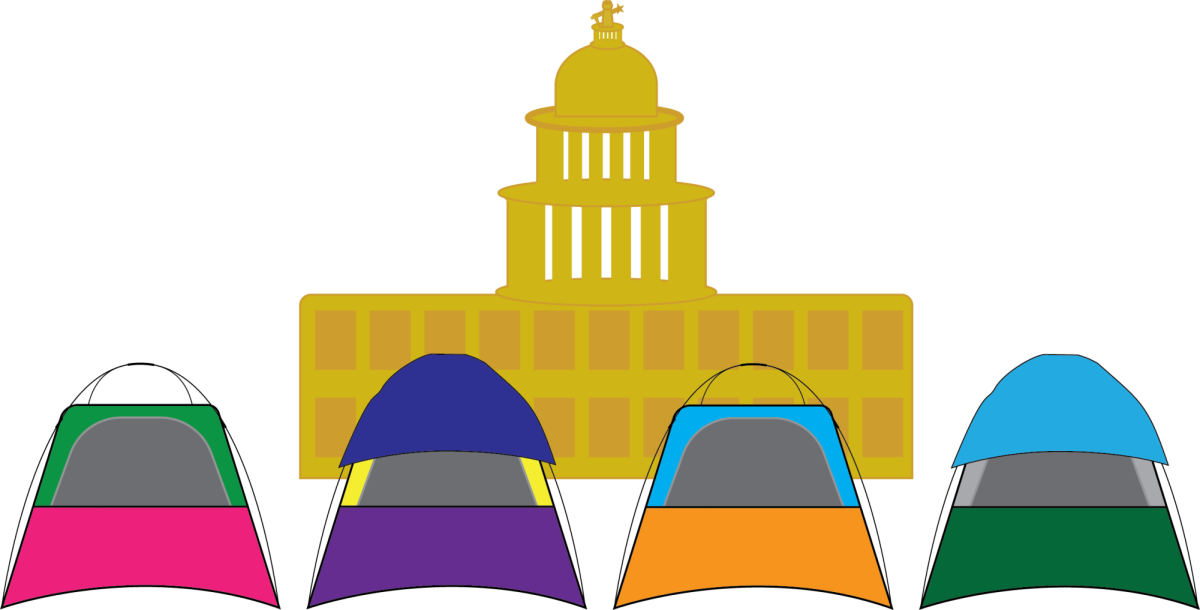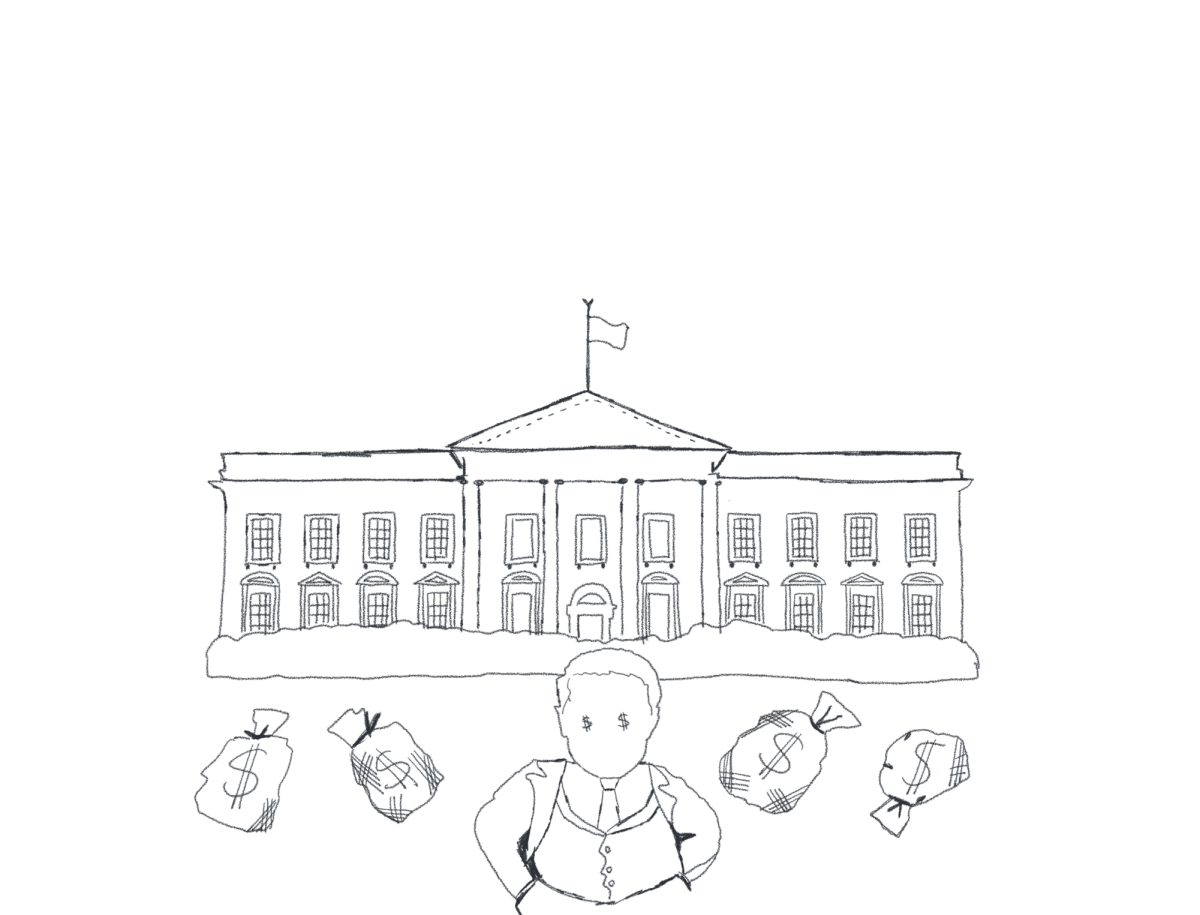Tents line the sidewalks under I-35, makeshift shelters cluster under wooded areas downtown, and thousands of residents are left without stable homes following the aftermath of the COVID-19 pandemic.
As Austin’s skyline grows, so does its homeless population, according to the Austin Monitor, which underscores a crisis that has become impossible to ignore. The city’s rising housing costs, combined with a shortage of affordable shelter options, have left people struggling to make ends meet. While efforts to address the issue continue, advocates stress that more long-term solutions are needed.
LifeWorks is an organization that works to solve youth homelessness for young people ages 16 to 22 by providing housing, mental health support, education, and workforce services. Many youth struggle to find stability in their life on their own, and they lack the proper skills to enter the workforce. Ken Bodden, director of marketing and communications at LifeWorks, emphasized the importance of early intervention and wraparound services to prevent youth homelessness before it becomes a long-term crisis. They do this by helping them address potential issues that prevent youths from receiving long-term housing.
“When a youth turns 18, they age out of the system and have nowhere to go,” Bodden said. “We work with DFPS to identify at-risk youth, and try and find them housing before they become homeless. Lack of experience is a big factor when a youth tries to enter the workforce, so we partner with many organizations in the community like Austin Community College (ACC) for learning opportunities and to try out various careers. We also work with youth on resume building, navigating the job search, and preparing for interviews.”
One of the biggest barriers for the homeless is securing stable housing amidst a spike in high rent prices and a shortage of low-income housing, according to the Texas Tribune. LifeWorks worked to try to break these barriers by building its own apartments in 2011. The Works Apartments is located in East Austin, next to LifeWorks’ main offices, and is within walking distance to ACC’s East Campus, and they have also helped youths find housing vouchers to pay rent and utilities and stay housed.
“We treat each youth as they are, and help fill in the gaps of support wherever they need,” Bodden said. “To find stability and pursue a life they love, they need more than a roof over their head– they need the chance to heal through counseling and to pursue a life they love by earning a diploma and finding a career path.”
The Sunrise Homeless Navigation Center (SHNC) has played a crucial role in addressing the housing crisis by providing low-barrier access to support services, serving as a critical resource hub for people experiencing homelessness. The center offers a wide range of services: daily meals, a computer lab, a mailroom for vital documents, hygiene kits, showers, and assistance with housing applications. Meg Jang, a member of the SHNC’s community partnerships team, helps clients navigate essential services.
“We were able to pay $1,500 to $2,000 to house a whole family, which is really important,” Jang said. “They were housed thanks to the deposit, and we were also able to accommodate their digital needs by giving them devices. It was a whole family of three, and they were now able to use their computers for ACC and go to school.”
Beyond providing direct services, Sunrise works to challenge misconceptions about homelessness by promoting public awareness. Jang emphasized the importance of education and empathy, noting that homelessness is a complex issue that can affect anyone under the right circumstances.
“The truth is, you’ve met somebody who has experienced homelessness, whether you realize it or not,” Jang said. “I always think that I could be just one life event away from being in that situation. Anyone could.”
Looking to the future, Jang sees Sunrise’s impact as a source of hope. She values the time and effort Sunrise takes in helping people in need.
“Sunrise gives me hope,” Jang said. “Even growing up in Austin, I didn’t know it existed for most of my life. But the thoughtfulness and care that go into every program, every person who works here, it’s really amazing. We’re not just handing someone food and sending them away. We’re addressing people as individuals, with real compassion and long-term support. That’s what Sunrise is all about.”
Homelessness in Austin is an issue recognized among students at LASA. The Hope Initiative Club, founded by sophomore Kate Wright, is dedicated to addressing homelessness in Austin through thoughtful and impactful actions. With approximately 30 members, the club meets monthly to assemble care packages filled with essentials such as socks, food, water, and sunscreen. These packages are then distributed by members who keep these bags in their cars and hand them out when they encounter homeless individuals in need. The club’s mission stems from Wright’s personal desire to make a difference in her community and address the growing homelessness crisis in Austin.
“Homelessness has always been a really personal issue to me,” Wright said. “It became even more real when I saw the need in Austin, and I wanted to do something about it. The Hope Initiative is all about taking small steps—packing bags with essentials that can make a difference in someone’s day. Every time we hand out a bag, it’s a moment of connection. And it feels good because we know we’ve done something that truly matters, even if it’s just in one person’s life.”






